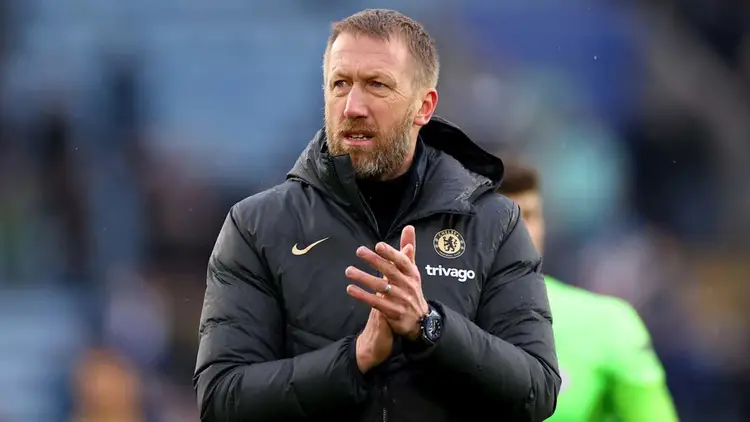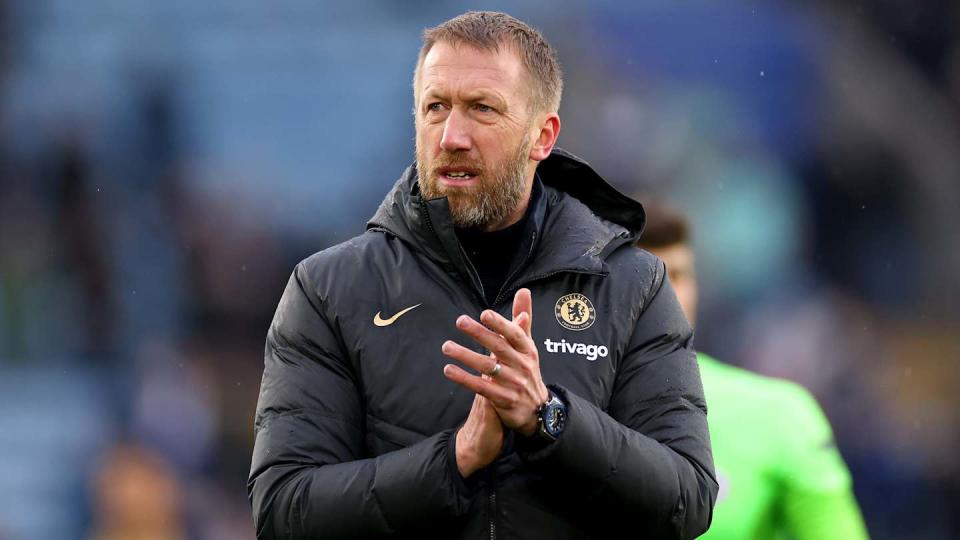Graham Potter explains why being Chelsea manager was an 'impossible' job

Graham Potter shares his thoughts on why leading Chelsea was an 'unmanageable' role.
Graham Potter has confessed that he struggled to manage Chelsea because of the constant changes in the player roster, the large size of the squad, and the instability that resulted from those factors.

Potter was appointed in September 2022, just a week after the summer transfer window had ended, to take over from Thomas Tuchel. Chelsea had brought in seven new first-team players who needed to blend in while the new manager was also getting used to his new environment.
In their second transfer window during the winter, the new ownership made significant changes by bringing in eight additional players to Stamford Bridge.
It was overwhelming to juggle all those changes while also striving to meet our bold goals.
"After talking to the owners, it was clear they had big goals. They aimed to compete for titles and bring in younger talent. I was excited about the chance to work with these younger players and create a positive atmosphere. We accomplished some good things," Potter shared during his appearance on Sky Sports' Monday Night Football.
Suddenly, there was a need for some adjustments while we were still focused on competing, and the entire team was in a state of change. We were constantly trying to adapt, but it’s tough to give everyone playtime. Achieving a sense of stability was a challenge. It’s all part of the experience; you gain insights as you go. It was a chaotic time in Chelsea's history, and I hope I could have performed better.
Potter was let go seven months into a five-year deal. By that time, the Blues had managed to win only four out of the 14 Premier League matches since the mid-season World Cup.
He fell victim to Chelsea's "win now" mentality, a mindset that has cost many coaches their jobs over the last three decades, especially since Roman Abramovich took control in 2003. In hindsight, Potter realizes that he was somewhat naïve, believing that the new ownership team under Todd Boehly would alter this approach.
"The culture at Chelsea has contributed to their success over the years, and I have a lot of respect for that. I guess you can sense that from both the media and the fans. Maybe my mistake was assuming that with new ownership, the culture would shift," he shared.
However, culture goes far beyond just the surface. Leading up to the World Cup, we had only suffered three defeats in the Premier League—one to Arsenal, who were leading the league at that moment, and another two against Newcastle and Brighton on their home turf. Yet, despite this, it felt as if we were under immense pressure, teetering on the edge of a crisis.
Gaining perspective can be challenging, especially when Chelsea was accustomed to winning and competing at a high level. It was simple for people to blame the coach, assuming he was struggling because he wasn't familiar with this level of competition or hadn’t worked in similar situations before. I could see why some thought he might be the issue, especially since the outcomes weren’t aligning with their expectations.













































